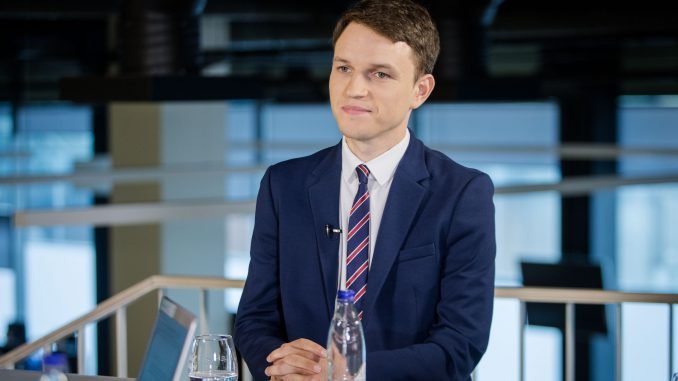
Sometimes diplomacy isn’t boring at all. The best proof of this is the Monday meeting between Donald Trump and Vladimir Putin in Helsinki, the curiosities of which began before the presidents even shook hands, Linas Kojala writes on lrt.lt.
On his twitter account, the leader of the United States wrote that it is namely the United States that are to blame for the problems in relations with Russia and his country. Supposedly, prior presidents made so many mistakes that only he can resolve them now.
This message was so celebrated by the Russian Foreign Ministry that it shared D. Trump’s message and wrote, “We agree.” Such online closeness of different countries’ politicians with a slew of disagreements is surprising, especially when nothing like this has been mentioned in D. Trump’s speeches, for example about the traditional ally of the European Union, which he described as “hostile to America” on the eve.
As if this was not enough, V. Putin arrived in the Finnish capital belated by an hour. This is no news at all, the Russian leader made German Chancellor Angela Merkel wait several hours, similarly so the Queen of England and even the Pope. That said, D. Trump did not back down: the American is also known for stepping into the room last. Thus, he waited for V. Putin to arrive from the airport to the Finnish presidential palace and only then moved toward it.
Later followed a two-hour face-to-face meeting, where only the presidents and their advisors participated. Also, a meeting of the two delegations over lunch. The event was crowned by the presidents’ joint press conference.
Nevertheless, the 1.5 thousand journalists and TV viewers across the world had to be left at least a little disappointed – the event’s pomp greatly exceeded the real content of the talks. At least in terms of how it was presented by the politicians. And this was due to three circumstances.
Firstly, the primary statements of both presidents were generic and did not came even close to what could be called a fruitful result. No one would be surprised if the leaders could have read these texts in completely different places, far away from one another, especially since the texts contained no new information or strategic guidelines, which would give hope for a breakthrough.
Second, D. Trump declared that this meeting is the basis for a new stage in Russian-US relations. In other terms, the worst period is now in the past because everything will improve from Helsinki onward. The statement is bold, but was not based on any specific decisions. Will the disagreements over the Ukrainian and Crimean annexations suddenly vanish? Will common ground be found regarding the continuing war in Syria? Will the problems over Russian tampering with the US elections go away? There are almost no premises to believe that this could happen.
Furthermore, even if D. Trump wished to suddenly change the direction of international relations, he would have to convince the entire political system of the United States, which is critical of Russia. D. Trump emphasised this during the press conference, stating that other politicians only seek to obstruct him and prevent him from resolving problems. It is likely that he had in mind the fact that after the president’s electoral victory, the Congress no longer allows him to make decisions on economic sanctions against Russia without its agreement. In other terms, D. Trump’s hand to drastically change the situation is limited because he is not trusted.
It is unlikely the Baltic States received much attention in the meeting. Both sides realise that there will not be any fundamental changes in their regard: NATO will continue to display through adequate means that the Alliance is united and prepared to deter third countries in our region. Meanwhile Russia understands well that the Baltic States’ membership in the Western union of states for almost 15 years now is a given that must be conceded to.
Thus, D. Trump’s expectations that his personal charisma and meeting-based diplomacy will have a large influence in terms of Russia were likely unfulfilled. And perhaps it is not even needed in practice because D. Trump will simply suffice with presenting himself as the victor of this situation and thus gladden the part of his electorate, which would prefer less confrontation with the Kremlin. Whether relations will really improve, few will be interested.
